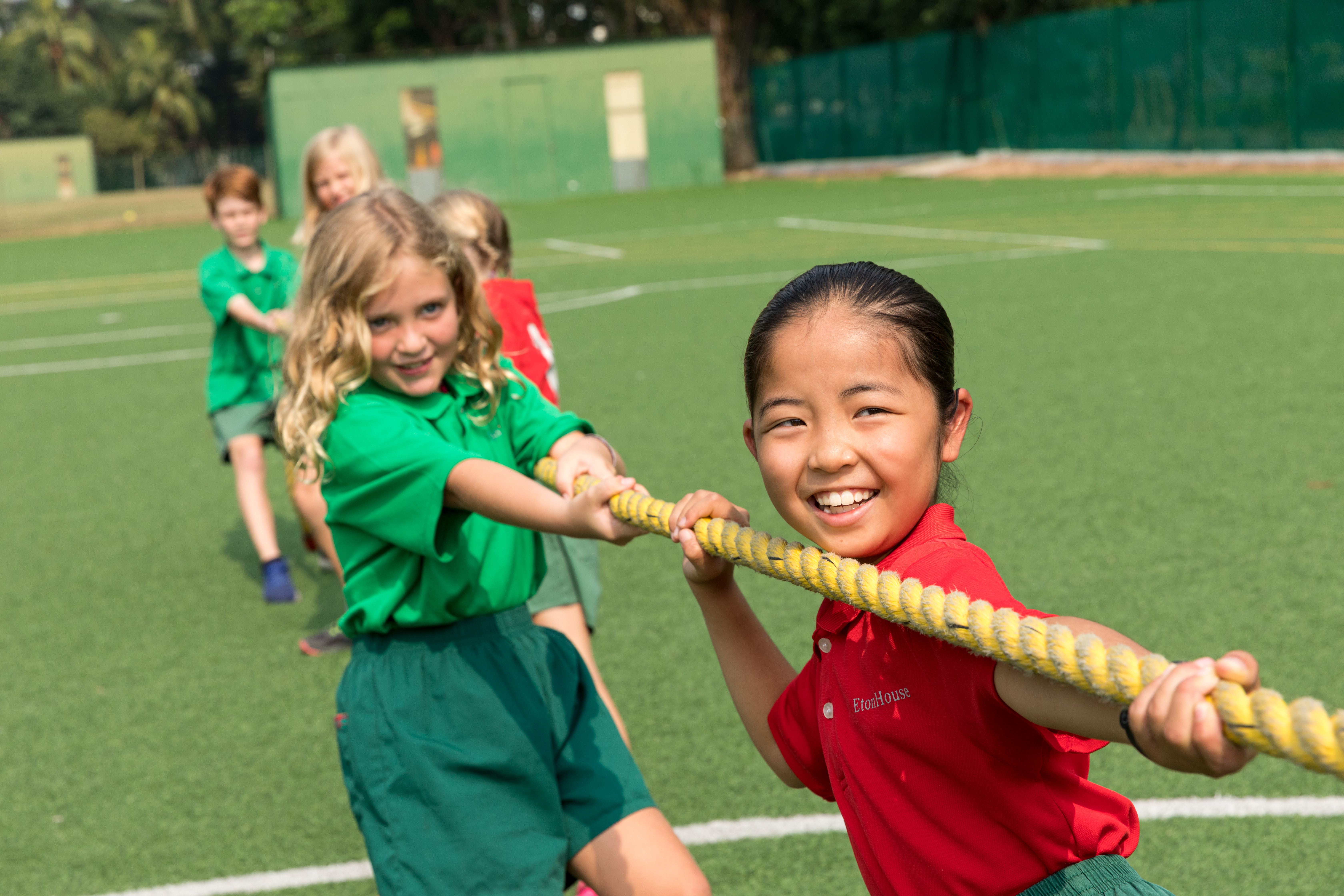-1.png)
EtonHouse Singapore
In this article, Adrian and Yi Xian will be sharing their adventurous experiences, how the challenges they encountered shaped them into a gritty person and tips on developing grit and resilience in our children. Read Part 1 here.
Adrian Bennett is a Guinness World Record holder for the longest triathlon completed, he has achieved the world record of 7519.67 km of running, cycling, and swimming which required immense perseverance and grit. Besides training for a triathlon, Adrian also teaches Design & Technology at EtonHouse International School Orchard.
We also have Ng Yi Xian, the Executive Director at EtonHouse International Education Group who oversees the operations of the EtonHouse schools in Singapore and China. During his free time, he enjoys the outdoors and adventure sports, in particular Free Diving.
Q: As an avid sportsman, you have done cave diving and deep-sea diving, can you talk us through a particularly difficult experience that tested your resilience? What did you do to overcome this challenge?
.jpg?width=184&name=YXs%20diving%20photo%20(3).jpg) Yi Xian: I came into a technical diving course as a certified cave diver. Everyone had expected me to know what I was doing, but I was a total wreck during training. I felt very disorientated, likely resulting from a physiological reason caused by poor visibility and strong currents at 30 metres. My instructor told me I could have died if we were to do that at the actual 45 metres depth, and I knew I had to shape up quickly. I went under a coconut tree and visualised what I had to do exactly, step by step, over and over again. In the afternoon, I did the same dive, and this time I succeeded.
Yi Xian: I came into a technical diving course as a certified cave diver. Everyone had expected me to know what I was doing, but I was a total wreck during training. I felt very disorientated, likely resulting from a physiological reason caused by poor visibility and strong currents at 30 metres. My instructor told me I could have died if we were to do that at the actual 45 metres depth, and I knew I had to shape up quickly. I went under a coconut tree and visualised what I had to do exactly, step by step, over and over again. In the afternoon, I did the same dive, and this time I succeeded.
A lot of times, the obstacles we face are in our head. The key to overcoming them is how we deal with these obstacles and our plan to achieve our goals. Focus on the factors that we can control and visualise the steps to reach our goal. This is an essential life skill to equip our children with for the real world.
Q: How can you teach grit and perseverance to a toddler or is that age too young to teach them grit? How do you encourage them to persevere with something that's challenging but will benefit them in the long run?

Adrian: You should not be putting too much pressure on yourself or your toddler. Due to a child’s growth and development, it is difficult to teach something as difficult as grit or resilience at that age. My suggestion is to be a good role model during this process, for instance, make sure you are not overreacting to certain situations. Try and be a restorative parent where you have a good chat with your child after an unpleasant situation. In summary, don’t be too hard on yourself.
Yi Xian: The inner voice inside our head that gives us reinforcement when we are working on a task develops at a young age. When you are interacting with a toddler, you might assume it didn’t matter because they are young, when in reality, the child is always paying attention and observing. You can try to be more positive or constructive when supporting them. For instance, when your child is having difficulty accomplishing a task, you can ask your child, “how do you plan to achieve this, what is your plan?”
Essentially, we are trying to plant the seed inside them from a young age so that years later when they encounter difficulties, they can start asking themselves what is my plan, what are my next steps to achieve the goal.
Q: How do you overcome a child's fear of failure?
Yi Xian: Having a fear of failure is something natural, but how do you react when that happens to your child? Imagine there is a toolkit of parenting, there is a nurturing element, there is a coaching element, tough love, and others. My suggestion is to give positive reinforcement or to be a coach when you are supporting your child to overcome the fear of failure. You can say something like, “even if you fail, I still love you”.
Adrian: In the classroom, we are helping our students to develop a growth mindset by trying to help them be more aware of failures and getting familiar with failure. We would encourage them to take the first step instead of focusing on the big and scary goal. It is often not as bad as they imagined after taking the first step.
Growing up is basically going from one failure to another failure but it is all about learning to push through these barriers and to do better. As an adult, we should be as supportive as possible, you can say, “it’s alright, nobody is going to look down on you because you haven’t done it correctly, the reality is you tried and we are proud of you for the effort.”
Q: How can we foster resilience in highly sensitive children, when "toughening them up" causes more harm than good?
Yi Xian: It made me think about the power of role models because sometimes it’s about who is giving the message. Maybe we are not the right people to be giving the message to our children so we could nudge them to a friend or role model group that exhibit these behaviours for advice and support.
Adrian: It is also worth remembering that making changes towards certain behaviours or nurturing grit and resilience takes time, it cannot be done in a short period. It is also about safety, we want to provide an environment where our children can feel safe. For a sensitive person, it is going to take more effort and coaching in order for the person to develop an inner power to overcome some of their sensitivities.
In summary, we could role model grit for our children, use positive reinforcement, and be supportive to help them take the first step or when they encounter failure.
Click play to view the full webinar recording
Join us in the next episode of the EtonHouse Parenting Webinar where we invite a principal and a parent to speak on respectful parenting techniques on the 7th of December.


